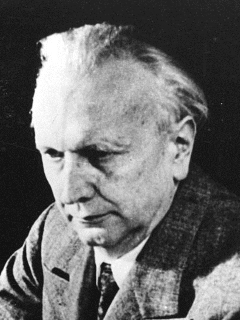Uriah Kriegel
(2003). Consciousness as intransitive self-consciousness: Two views and an argument. Canadian Journal of Philosophy, 33, 103-132.
(2003). Consciousness as sensory quality and as implicit self-awareness. Phenomenology and the Cognitive Sciences, 2 (1), 1-26. https://doi.org/10.1023/A:1022912206810.
(2003). Consciousness, higher-order content, and the individuation of vehicles. Synthese, 134 (3), 477-504. https://doi.org/10.1023/A:1022913321854.
(2003). Consciousness, higher-order content, and the individuation of vehicles. Synthese, 134, 477-504.
(2004). Consciousness and self-consciousness. The Monist, 87 (2), 185-209.
(2004). The functional role of consciousness: a phenomenological approach. Phenomenology and the Cognitive Sciences, 3 (2), 171-193. https://doi.org/10.1023/B:PHEN.0000040833.23356.6a.
(2005). Naturalizing subjective character. Philosophy and Phenomenological Research, 71 (1), 23-57.
(2006). Externalism: putting mind and world back together again. Philosophy and Phenomenological Research, 72 (2), 487-490.
with Williford, K. (eds) (2006). Self-representational approaches to consciousness. Cambridge, Mass.: MIT Press.
(2007). The phenomenologically manifest. Phenomenology and the Cognitive Sciences, 6 (1-2), 115-136. https://doi.org/10.1007/s11097-006-9029-8.
(2008). Moral phenomenology: foundational issues. Phenomenology and the Cognitive Sciences, 7 (1), 1-19. https://doi.org/10.1007/s11097-007-9057-z.
(2009). Subjective consciousness: A self-representational theory. Oxford: Oxford University Press.
(2013). Phenomenal intentionality past and present: introductory. Phenomenology and the Cognitive Sciences, 12 (3), 437-444. https://doi.org/10.1007/s11097-013-9308-0.
(2013). Understanding conative phenomenology: lessons from Ricœur. Phenomenology and the Cognitive Sciences, 12 (3), 537-557. https://doi.org/10.1007/s11097-013-9307-1.
(ed) (2013). Phenomenology and the Cognitive Sciences 12 (3).
(2014). Self-representationalism and the explanatory gap. In J. Liu, & J. Perry (Eds.). Consciousness and the self (pp. n/a). Cambridge: Cambridge University Press.
with Billon, A. (2015). Jaspers' dilemma: The psychopathological challenge to subjectivity theories of consciousness. In R. Gennaro (Ed.). Disturbed consciousness (pp. n/a). Cambridge, Mass.: MIT Press.
with Zahavi, D. (2016). For-me-ness: What it is and what it is not. In D. Dahlstrom, A. Elpidorou, & W. Hopp (Eds.). Philosophy of mind and phenomenology (pp. n/a). London-New York: Routledge.
(2017). Brentano's concept of mind: underlying nature, reference-fixing, and the mark of the mental. In S. Lapointe, & C. Pincock (Eds.). Innovations in the history of analytical philosophy (pp. 197-228). Basingstoke: Palgrave Macmillan.
(2017). Brentano's evaluative-attitudinal account of will and emotion. Revue Philosophique de la France et de l'Étranger, 142 (4), 529-558 .
(ed) (2017). The Routledge handbook of Franz Brentano and the Brentano school. London-New York: Routledge.
(2018). Brentano's philosophical system: mind, being, value. Oxford: Oxford University Press.


